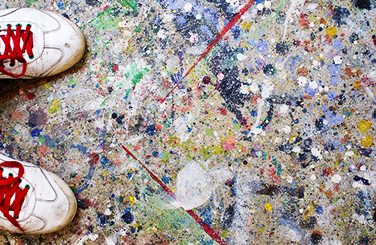E&M’s Ana-Christina Gaeta reflects on growing up in the International School system, and whether the cultural plurality of the student body was really reflected in their attitudes towards one another.
I moved countries a lot. To be exact: I have lived in six countries, ten cities, and attended over a dozen schools in my lifetime. On two occasions, I attended international schools which are made up of kids of expat families who are living outside their home country for work related reasons. The international school system is made up of possibly the most multi-cultural community in the world. While being part of such community brought me many positive experiences, it took me a very long time to realise how much I was exposed to cultural shaming.
In most countries, there are not many differences that divide students in a school, apart from social class. In contrast, international schools are made up of dozens, sometimes hundreds of different cultures, languages, nationalities and combinations of them. It was common that, in a community of 500 students, there would be over 80 different nationalities, many of which one would have never encountered before.
This experience comes with many privileges: the opportunity to meet people from all over the world, to travel to other countries for sports games and to be exposed to new languages and cultures. However, as multi-cultural as these communities may be, communities of international school systems are often bubbles of nomad families who trot across the globe intermingling with other international bubbles, yet rarely associating themselves with the culture of the country of residence. While one would imagine that a school with such diversity would be a hub of multi-cultural celebration and exchange, based on my own teenage experience, this is not the reality.
Amongst cultureless diversity
Going to school is a daunting experience for every kid – for some more than others. The only thing you want is to fit in and whether this is easy or difficult for someone, every living being experiences it in their own way.

As a teenager growing up in the international school system, I experienced how a multi-cultural environment does not necessarily inspire cultural pride and exchange. Rather, sharing a space with such a vast diversity can do quite the opposite. Amongst teenagers in particular, diversity silently demanded homogeneity.
It took me many years after leaving this particular community to actually realise the many ways it has shaped me – both positively and negatively. From a cultural perspective, it felt like everybody was trying to be as ‘normal’ as possible, but what is ‘normal’ when everybody is different? In my experience, both international schools I attended held an American curriculum which attracted a lot of expat-families from the United States. In these cases, the American way of life was the closest thing to ‘normal’. We all gravitated towards this mentality, pop culture, clothing style, slang, all under the natural teenager quest to be part of the pack.
While, on one hand, it is true that some parents of the international communities seem to take on the role of cultural ambassadors of their nations, it is quite normal that kids and teenagers, on the other hand, do not share such passion and enthusiasm to represent their countries. After all, we were still just kids in the process of carving out our own identities.
Apart from ‘International Day’, the one day of the year in which the school celebrates its diversity, the rest of the time we left our heritage, history, culture and stories at home with our families.
Being the daughter of a patriotic Mexican mother, I was always forced to play an active role in representing Mexico during International Day. This entailed wearing traditional dresses and walking in the parade waving the Mexican flag with pride. I simply hated it. Not because I was ashamed of where I come from – I am and have always been proud of my roots. But I felt exposed by being the only one of my friends who had to step out of my normal clothes into something that would classify me as different. In the teenage search to fit in, my cultural pride didn’t stand a chance.
The source of my fear of standing out was certainly fueled by insensitive jokes which I had to cope with throughout the years.
It’s all fun and games
At one of the public schools I attended in Houston, Texas, it was normal to see kids being beat up, or people’s lockers being stuffed with nasty substances like in the movies. Luckily, I was never bullied; or so I thought. It actually took me a very long time to realise that I had in fact been bullied, I just didn’t perceive it as such at the time because it wasn’t physical and because it came from my own friends.
I was one of two Mexican students in the International high school that I attended in The Netherlands. Laughing along to my friend’s illegal immigrant jokes was as normal as saying “good morning”. Between the “my lawn needs some mowing” joke in the morning and the “how did you get to Europe? Swimming?” joke in the afternoon, I genuinely became convinced that this was just ‘banter’. In such an international environment, this is what people did, joke about their cultures – right?
One time in math class, when somebody walked behind my desk and accidentally spilled water on my back, another Dutch boy sitting behind me started laughing and yelled out “wetback!” which is a derogatory term referring to illegal Mexicans in the US who arrived swimming across the Rio Grande. The teacher told the student to “take a walk.” This sort of “light racism” was so common that the kid’s punishment was to leave class early, and the cool thing for me to do was to pretend it didn’t happen.
Today, I realise so many things that were wrong with those high school interactions. First of all, it didn’t happen anywhere else I ever lived, at least not so habitually and nonchalantly. Based on my own experiences, stereotype jokes were the most acceptable in an environment where such diversity of cultures offered a lot of ‘humorous’ material.
Second, the particular individuals that abused their friendship power to tap into the Mexican stereotypes were all, strictly, white males. I don’t have a single friend that is a woman, and that is not from North America or Europe who is making jokes about minorities or national stereotypes. This white-male phenomenon makes the entire experience far more upsetting as it imposes a sense of authority over our friendship.
What is offensive is their obliviousness to the role and power that their words have on shaping popular discourse around minorities and stereotypes.
I am aware of the fact that all teenagers are somewhat ignorant and entitled in different degrees, yet the disturbing reality is that still today, the jokes continue amongst many adults. If one expresses discontent with such comments, we are judged as sensitive, square and uptight.
I must highlight that it is not the actual joke which is offensive to me: with so many years of training, I can easily brush them off. Rather, what is offensive is their obliviousness to the role and power that their words have on shaping popular discourse around minorities and stereotypes. Today, this insensitivity on behalf of some individuals in my life poses me great distress and even shame, to the point that I am increasingly uncertain about how to deal with such relationships. How do I make them understand that it is not they who get to decide the ‘lightness’ of their casual joke?
Colonialist Banter
Today I see so clearly the power dynamic that is rooted in the colonialist mindset of popular European and North American ‘banter’, which is practiced so lightly by many. Making jokes about ethnic and cultural inferiority, particularly when the ‘innocent joke’ is being made by an individual belonging to the ethnic group of the coloniser is one of the many social legacies of colonialism. The colonial mentality that exists amongst all of us, survives in the 21st century disguised as humour. Yet joking about the cultural values and struggles of others we cannot relate to is rooted in the inherent belief of the superiority of one’s own way of life. Only when someone is so far removed from a reality they have never known can they so shamelessly make fun of it.

In 2019, it is socially expected that any ‘educated’ individual or ‘person with their values in the right place’ knows that just because one has Latin, Black, Jewish, or any other friends belonging to a particular minority or ethnicity, ABSOLUTELY DOES NOT give one the authority to make casual jokes about the struggles of these cultures.
Stereotypes are dangerous. They diminish entire cultures and individuals to oversimplified ideas and images, stripping away their identity. Stereotypes allow people to make snap judgements which often lead to bias and to the assumption that stereotypes are always true. Stereotypes contribute to keeping cultural judgements alive within the consciousness of the general population. Stereotypes are the social fuel of modern-day racism.
Worldly Ignorance
Cultural and racial insensitivity is often blamed on ignorance, lack of education and lack of worldly experiences, yet from my point of view, this is far from the norm. People can travel the world, befriend every nationality, even have an inter-racial marriage, and still contribute to feeding the racist discourse that is kept alive by humourising stereotypes.
Stereotypes do not have to be about culture and race and they can also be positive. One can be stereotyped by their height, weight, the car they drive, their job, and pretty much anything. Therefore, we are all victims and contributors to making general assumptions about people, it’s part of the natural flow of human interactions.
I’m definitely not exempting myself from stereotyping others, yet I’m choosing to reflect on the impacts of cultural stereotyping because it is the one I have been most affected by.
In a community where everybody is from a different culture, the teenage search to fit in played a very strong role in ‘whitewashing’ and homogenising the diversity of the community. On top of the normalisation of stereotypes that is born at the crossroad between diversity and the colonialist mentality, ‘culture’ is undervalued and vulnerable to disrespect and appropriation. I mean cultural appropriation in the sense that having relationships with a given culture gives one the perceived authority to mock it.
Being part of the international school system left so many positive things in my life. I have friends from all over the world, I had the privilege of living in many different countries, the opportunity to learn different languages, and for people who have spent so much time moving, the international community welcomes you as part of its own. But this privileged experience also had its costs. Only today am I able to see the bigger picture of how my experience as part of this multi-cultural community played such a strong role in my own de-culturalisation.
If I could turn back time, I would have never been so submissive to cultural shame. I would have rejected the Americanisation that resulted from fitting in. I would not have contributed to the normalisation of stereotypes by accepting all the jokes that came my way, and I would have strutted the International Day parade with pride.
But I don’t dwell on what I did and did not do as a teenager because adolescence is a weird time, and we are all just a product of our environment. What I know today with crystal clear certainty is that I don’t have any more energy for individuals who are incapable of demonstrating the most basic level of respect for the unfamiliar.
I am 29 years old – and I am letting the world know I am done with your Mexican jokes.
Cover photo: US Naval War College (Flickr); Licence: CC BY 2.0










